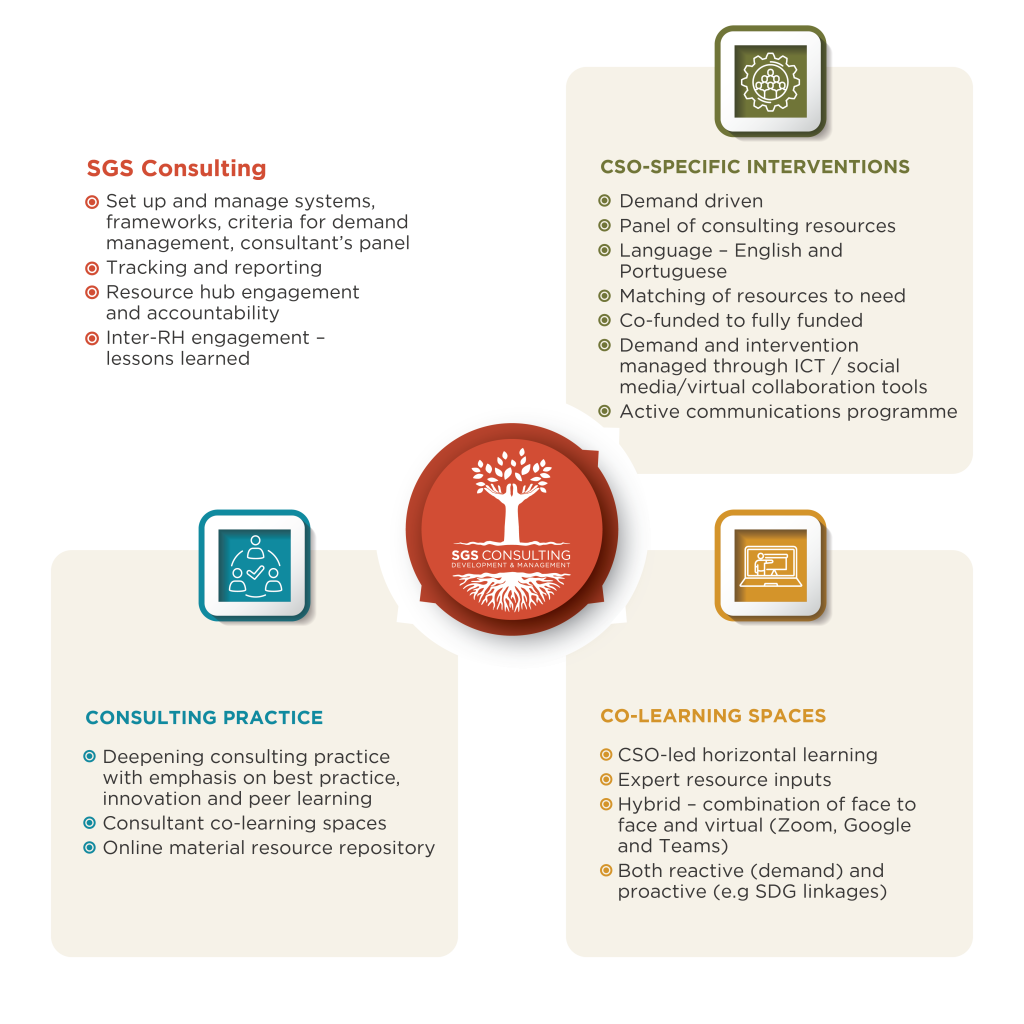The Resource Hub initiative is a partnership between the Office of Southern Africa (OSA) and the international programme on Civic Engagement and Government (CEG-I), to provide institutional strengthening support to NPOs and community-based civil society organisations (CSOs). The Resource Hub (RH) initiative is funded through the Foundation’s Social Bond allocation which seeks to build resilience and sustainability in the social justice field.
The SGS RH functions with an emphasis on reaching community based and grassroots organisations that work in the social justice space in Southern Africa. The key principles that underpin and drive the work of the SGS RH include anti-racism, anti-ableism, anti-patriarchy, and anti-colonialism. Priority is given to grassroots organisations that are black-led, women-led, disability-led, and youth-led in primarily marginalised and rural areas in the region. The focus is on institutional resilience and programmatic relevance, mainly in response to the disruptive devastations of Covid-19 that served to significantly weaken organisations of civil society. The purpose of the SGS RH is to contribute to the rebuilding of these grassroots organisations to reach optimal levels of delivery.
The SGS RH services respond to the reality that civil society organisations, mainly at the grassroots levels, struggle to access quality institution building, programme development, governance, leadership and related consulting, support services.
Civil Society Organisations in the social justice space, are fully capacitated, inter-dependent, technologically competent and well-resourced to effectively drive and influence transformative social change in Southern Africa.

Funded by

“On behalf of the World Connect Malawi team, I would like to express my heartfelt thanks for the great work and support you rendered to us last week. Your presence made a huge difference and I believe we have planted a seed that will grow exponentially in the coming years. Feel appreciated”.
SGS Consulting has been instrumental in ICA’s growth and development into a Community Foundation of note on the African continent. We’ve made strong strides, we’ve built slowly but we built deliberately and with the support of SGS Consulting we have been able to put in place systems and procedures that have cemented the Community Foundation as one of the strong ones on our continent. We want to appreciate the ongoing and constant support of SGS Consulting over many years to ICA
I have known SGS Consulting since my time working at the Zambian Governance Foundation and I have been impressed by their dedication to building the infrastructure for community philanthropy, providing organizational development services in the social justice sector, and enhancing education improvement and development.